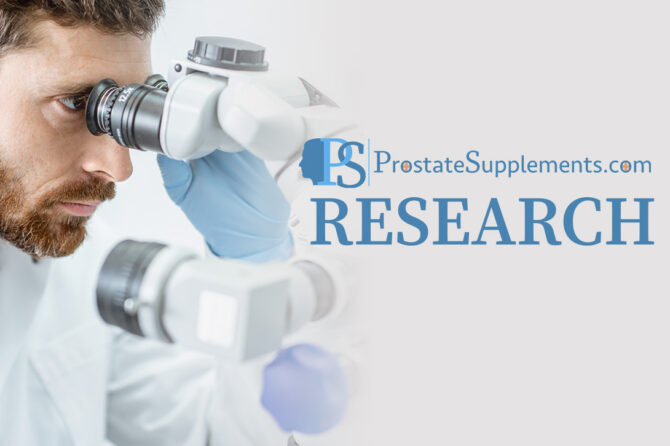
Octacosanol: Health Effects with Focus on Men’s Health, Prostate Health, and Urinary Benefits
Octacosanol is a long-chain aliphatic alcohol (C28H58O), a component of the natural waxes found in various plants such as wheat germ oil, sugarcane, rice bran, spinach, and other leafy vegetables. It has garnered scientific and clinical interest due to its diverse physiological effects, ranging from lipid regulation to potential roles in neuromuscular performance and prostate health. The compound is commonly studied as part of policosanol, a natural mixture of fatty alcohols where octacosanol is the dominant constituent.
Given the rising global prevalence of prostate-related conditions and metabolic disorders in men, octacosanol has become an area of significant interest in men’s health research. This article explores its general health effects, specific roles in men’s health, its impact on prostate and urinary functions, as well as its uses and ingestion methods.
General Health Effects of Octacosanol
1. Cardiovascular Health and Lipid Regulation
Octacosanol has been studied for its hypolipidemic (cholesterol-lowering) properties. Clinical studies suggest that supplementation with policosanol (standardized mixtures rich in octacosanol) may:
- Reduce LDL cholesterol and increase HDL cholesterol.
- Improve overall lipid profile, thereby lowering cardiovascular risk.
- Exhibit antioxidant activity, reducing lipid peroxidation and protecting vascular endothelium.
2. Neuromuscular and Exercise Performance
Octacosanol is often marketed as a natural ergogenic aid. Experimental and clinical data suggest it may:
- Enhance endurance by improving oxygen utilization.
- Support glycogen metabolism and delay fatigue.
- Promote muscle recovery, possibly via antioxidant mechanisms.
3. Neuroprotective Properties
Emerging research indicates that octacosanol may support neurological health by:
- Protecting neurons from oxidative stress.
- Modulating dopaminergic activity, which may have implications for neurodegenerative conditions such as Parkinson’s disease.
Effects on Men’s Health
1. Hormonal Balance and Metabolic Function
Octacosanol contributes to the regulation of lipid metabolism and may indirectly support hormonal health, particularly testosterone balance, which is closely linked with lipid metabolism and energy levels in men.
2. Energy, Stamina, and Physical Performance
Given its role in exercise endurance, octacosanol may be beneficial for men seeking natural ways to improve stamina, muscle performance, and overall vitality.
3. Sexual Health
Though direct evidence is limited, the improvement of cardiovascular and metabolic health through octacosanol supplementation may indirectly support sexual health and erectile function, as vascular integrity is crucial for normal performance.
Octacosanol and Prostate Health
1. Benign Prostatic Hyperplasia (BPH) and Urinary Symptoms
BPH is a common condition in aging men characterized by urinary difficulties due to prostate enlargement. While octacosanol has not been as widely studied as saw palmetto or beta-sitosterol for BPH, some preclinical and clinical studies suggest that:
- Its lipid-lowering and anti-inflammatory properties may indirectly reduce prostate-related risks.
- By improving vascular function, octacosanol may enhance blood flow to the prostate and surrounding tissues, supporting overall urinary tract health.
2. Prostate Cancer Considerations
Research is preliminary, but antioxidant compounds such as octacosanol may reduce oxidative damage, a factor in carcinogenesis. However, more clinical studies are needed to establish a definitive role in prostate cancer prevention.
Urinary Benefits of Octacosanol
Octacosanol’s indirect benefits on urinary health are linked to its vascular and anti-inflammatory effects:
- Improved urinary flow: By potentially reducing prostate swelling and supporting smooth muscle function in the urinary tract.
- Reduced nocturia: Some anecdotal reports suggest improved sleep patterns through reduced nighttime urination, though more studies are needed.
- Bladder health support: Antioxidant effects may contribute to overall lower urinary tract function.
Uses of Octacosanol
- Dietary Supplement: Widely available as capsules, softgels, or tablets (commonly in policosanol form).
- Sports Nutrition: Marketed as a performance-enhancing compound for endurance athletes.
- Functional Foods: Incorporated into certain health foods and fortified oils.
- Adjunct Therapy: Sometimes used alongside lifestyle changes and conventional treatments for cholesterol management and men’s wellness.
Ingestion Methods
1. Dietary Sources
- Wheat germ oil: One of the richest natural sources.
- Sugarcane wax: Common industrial source for supplement extraction.
- Rice bran and spinach: Provide smaller quantities through dietary intake.
2. Supplementation
- Standard Dose: Clinical studies often use 5–20 mg per day of policosanol (octacosanol-rich extract).
- Formulations: Usually taken as oral capsules or tablets.
- Absorption: Best taken with meals containing healthy fats to enhance bioavailability.
3. Safety and Tolerability
- Generally considered safe with minimal reported side effects.
- Occasional mild gastrointestinal discomfort has been observed.
- Caution is advised in patients taking blood-thinning medications, as octacosanol may influence platelet aggregation.
Conclusion
Octacosanol is a naturally occurring fatty alcohol with promising roles in cardiovascular, metabolic, and neuromuscular health. For men, its significance extends to potential improvements in stamina, prostate health, and urinary function. While more clinical trials are needed to establish definitive roles in BPH and prostate cancer, current evidence suggests it may serve as a supportive dietary compound for men’s overall wellness.
With its broad spectrum of benefits, octacosanol stands out as a valuable nutraceutical agent, especially when integrated into a holistic lifestyle approach to men’s health.
Leave a reply

Leave a reply